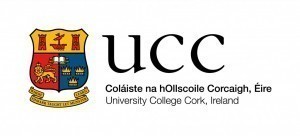23 February 2016
By Bryan T. Smyth
bryan@TheCork.ie
One in every eight Europeans has Vitamin D deficiency, according to the UCC-based coordinators of the ODIN project.
Professors Kevin Cashman and Mairead Kiely at UCC’s Cork Centre for Vitamin D and Nutrition Research report in the American Journal of Clinical Nutrition this week that the prevalence of vitamin D deficiency in Europe is 13% – one in every eight individuals.
Furthermore, up to 40% of individuals have vitamin D levels which are not sufficient to support good bone health.
For the European Commission-funded project, the scientists conducted an analysis of vitamin D status in 18 nationally or regionally representative studies of European children, teenagers, adults and the elderly, which collectively included 55,844 individuals, spread from as southerly as Crete (35°N) to as northerly as Tromsø, Norway (69°N).
The analysis used standardised data for vitamin D status, a key and novel approach developed by the Vitamin D Standardization Program at the National Institutes of Health in the US.
This first European-wide information on vitamin D status is critically important for public health authorities across Europe. Severe vitamin D deficiency causes rickets in children and osteomalacia in adults; it may also increase risk of many other chronic non-bone related diseases.
Worrying results from the ODIN study show that 18 to 65% of dark-skinned individuals in the UK, Norway and Finland were vitamin D deficient, much higher than the white populations in those countries.
The prevalence of vitamin D deficiency among white Europeans is also of concern. The project’s results show that 12-15%, 12% and 20% of the German, Irish and UK populations, respectively, had vitamin D deficiency, would translate to about 11 million, 500,000 and 13 million individuals in these countries alone.
Professors Cashman and Kiely, together with their UCC team and multiple partner research groups across Europe, are developing food-based strategies to prevent vitamin D deficiency within the ODIN project.
The UCC-based coordinators and some of their project partners will present this new information on vitamin D deficiency, as well as results from studies within the project on vitamin D-enhanced foods, such as bread, mushrooms, cheese, cultured fish, pork, beef and eggs, at the European Commission next month.
According to Professor Kevin Cashman of the Cork Centre for Vitamin D and Nutrition Research at UCC: “While sunlight is a key provider it is not strong enough during winter months to allow skin to make vitamin D, this is referred to as the ‘vitamin D winter.’”
“In addition, even in summer public health advice suggests limiting unprotected sun exposure due to important concerns about skin damage and cancer. The alternative source of vitamin D is dietary supply, however the amount in the diet of many Europeans have been shown to be low. Thus, additional supplies are required in the diet.”


